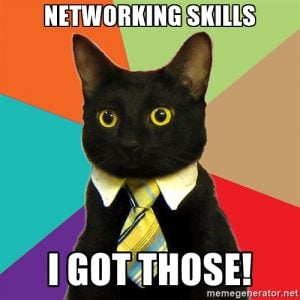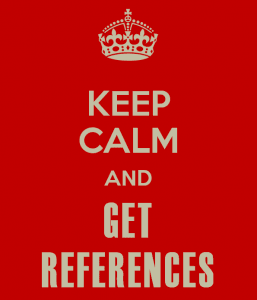Welcome to the machine.
 You’ve got rare, desirable skills — but are you ready for video interviews? Maybe what makes you rare is how hard you work for your employers. In any case, you apply for a job.
You’ve got rare, desirable skills — but are you ready for video interviews? Maybe what makes you rare is how hard you work for your employers. In any case, you apply for a job.
You fill out several pages of online forms. You attach a resume that you spent hours customizing to address the specific employer and job. You provide names of references, sign off on a waiver and agree to the terms required.
Software and some algorithms scan your data record for keywords. If they match those in the employer’s database, your application is flagged for the next step.
Then you get an e-mail. It asks you to click on another agreement, and to sit in front of your own video camera to answer a series of questions from an online robot. You carefully organize your responses and do your best to be calm and collected as you address the eye.
No one from the employer has spoken with you. No manager has taken time to answer your questions. No one at the employer company knows you exist.
When you’re done, you click your video interview up to a database at a company called HireVue. What you don’t know is that no human will ever take time to watch you answer all those questions. No one hears you speak.
 Another robot “views” your video and algorithms scan the sounds and movements you make in the video.
Another robot “views” your video and algorithms scan the sounds and movements you make in the video.
The employer has invested its money in HireVue, not in you, to conduct this assessment — which we can’t even call an interview because although HR is viewing there is no inter-action with anyone. It’s just your bit stream and a recording and some software and hardware, saving the employer the cost of deploying a human to judge you.
If your data doesn’t match the template the employer uses to match job candidates, the recruiting process ends. A quick look at the employer’s website reveals that “People are our most important asset!”
Sucks for you, doesn’t it?
Question
When I applied for a job, they wanted me to sign into something called HireVue so a robot could interview me. Are they kidding? They’re trying to attract people like me and the best they can do is a video camera? (Not to sound arrogant but the work I do is specialized and it’s not easy to find people with my skills.) Long story short, I told them (yes, told them) to take a hike. I’m a software developer. Would you like to join forces and create a robo-interviewer job candidates can send to employers? I’d like to see their faces when the talent they’re dying to hire wants them to pose for the camera before I decide they’re worth my face time. Are you seeing a lot of this, or is this just one clueless company (that I won’t name though I should)?
Nick’s Reply
In the midst of a talent shortage, HR tells the talent to sit for video interviews but can’t figure out why it can’t attract the talent it needs. Gee, is there a connection? Or is the modern HR executive daft?
I keep seeing HireVue infomercials popping up in the news. It’s a fair guess that these uncritical fluff columns are HireVue’s PR team pitching “content” to the media. Press releases are free advertising, but many media outlets eat it up because the PR agent does all the work and basically writes the article. The news outlet saves money, too, while real news reporters collect unemployment.
There’s a recent fluff piece about HireVue in the Wall Street Journal — which should know better: Video Job Interviews: Hiring for the Selfie Age. (The Journal requires a paid membership, but you can view the article for free by searching Google for the title, then X-ing past the splash screen.) On the other hand, the dusty skeleton in the WSJ’s closet is its defunct CareerJournal, which compromised the newspaper’s editorial integrity to sell its job-board service: Job-Board Journalism: Selling Out The American Job Hunter. So perhaps it’s no surprise the WSJ is hawking HR technology.
I’d like to ask the Ask The Headhunter community: Do you as a job seeker (or as a hiring manager, or as even one of the many HR folks who subscribe to Ask The Headhunter) buy this stuff?
 Interview videos infomercial claim #1
Interview videos infomercial claim #1
“…companies say [HireVue] is an efficient, fair and inexpensive way to process hundreds of applicants…”
The key word in this statement is “process,” as in “process meat.” Here’s what Gilman Louie, partner at Silicon Valley venture firm Alsop Louie, told me about how modern HR technology destroys an employer’s competitive edge:
“HR processes 2,000 candidates! They don’t look through 2,000 candidates! And at the end of the process, what they get is the same candidate that everybody else running PeopleSoft gets! So where’s your competitive advantage if everybody turns up with the same candidates?”
Infomercial claim #2
“Video interviews have significantly reduced travel costs for Cigna recruiters. Frank Abate, a senior recruiter there, said one of his colleagues racked up more than $1 million annually just traveling to meet candidates. Since adopting video interviews four years ago, that colleague’s expenses are now under $100,000.”
Gee. Imagine spending money to go find the talent. Cigna is saving by not meeting candidates.
By not meeting candidates.
By not meeting candidates.
You can’t make this stuff up.
Imagine if Cigna told its sales team to stop spending money to call on customers to close deals.
I love your idea for a robo-interviewer app for job seekers. Imagine how much you — the talent — could save by telling employers to talk to the video camera before you bother talking to them in person. Get that employer ready for its close-up. Tell HR you don’t talk to the hand.
Infomercial claim #3
 “Recruiters at IBM and Cigna said they evaluate candidates based on how well the person communicates his/her thought process, whether the person answers all parts of the question—and whether he/she makes eye contact.”
“Recruiters at IBM and Cigna said they evaluate candidates based on how well the person communicates his/her thought process, whether the person answers all parts of the question—and whether he/she makes eye contact.”
Eye contact??? Uh, contact with what eye??
Infomercial claim #4
“HireVue, InterviewStream, WePow and other vendors that make video-interviewing software say their programs make hiring more fair because all applicants must answer the same questions, placing substance over schmoozing and small talk.”
Schmoozing and small talk are bad things. The robo-interview vendors now save HR jockeys from the ignominy of having to talk with the talent HR claims is so hard to find, so hard to attract, so hard to hire. Heaven forbid recruiting should be a social interaction where you can judge someone in person.
Small talk is a bad thing. But employers say they want to judge applicants for cultural fit. Tell it to the camera.
Just how gullible is HR?
While the HR profession’s existence is being questioned in the C-suite, HR outsources its most important job — hiring — in a stunning display of gullibility. Wowed by technology it doesn’t even understand, HR deploys it at enormous cost to insult the talent it needs to attract during a talent shortage.
The by-line on this WSJ “article” is Dahlia Bazzaz, a former “crime reporter” and summer intern — and Ms. Bazzaz goes on to blurt out this sales pitch for HireVue:
 “Taking robo-recruiting one step further, some HireVue customers have an algorithm review the video interviews for them. Using data about the skills and attributes companies are seeking for a given role, a program called HireVue Insights scans videos for verbal and facial cues that match those skills then ranks the top 100 applicants.”
“Taking robo-recruiting one step further, some HireVue customers have an algorithm review the video interviews for them. Using data about the skills and attributes companies are seeking for a given role, a program called HireVue Insights scans videos for verbal and facial cues that match those skills then ranks the top 100 applicants.”
Now I get the “crime reporter” part, and we get to what’s really going on. Personnel jockeys don’t just avoid recruiting and interviewing you. They let HireVue’s robots “watch” your interview videos. Don’t those schmutzes realize they’re next? WTF? Inflatable interview dolls?
Let’s go back to Gilman Louie, whose investments in the digital world are his livelihood. What does he say about picking people?
“When you’re selecting people.. it’s personal. And personal is not digital.”
HR eats this stuff up.
“Speeding up the hiring process allows recruiters to look at more applicants than before…”
HR complains its job postings yield such a flood of applications that HR can’t possibly “look through” them all. But now personnel jockeys have time to look through all those videos. Gullible?
We could partner to produce an app that requires HR to make video interviews job applicants can watch to judge employers. But we’d do better selling popcorn to all those couch potatoes while they dial the talent knobs. Then there’s this idea for production services we can sell to job applicants: HR Pornography: Interview videos.
Companies like HireVue, InterviewStream, WePow — can you blame them because HR is stupid enough to spend its money insulating itself from, and insulting, the talent HR says is so hard to attract in today’s hiring market?
Can you? I can. These HR technology vendors are vampires sucking the recruiting budgets out of comatose HR departments while pitching stories to the media about how people are interchangeable parts — to be sorted by algorithms and selected by robots.
The HireVue Quiz
There’s an issue with HireVue’s video interviews I haven’t even mentioned. Can you guess what it is?
Would you sit for a robo-interview? Or would you rather HR pose for you first? Just how daft do you think HR is?
: :
 If there’s any change, we donate it to an animal shelter.) The sooner you appear with a dog, the bigger the bonus you’ll earn — up to $1,000.
If there’s any change, we donate it to an animal shelter.) The sooner you appear with a dog, the bigger the bonus you’ll earn — up to $1,000. The U. S. Department of Labor
The U. S. Department of Labor

 Employers are so out of it that they’re not only putting up digital roadblocks against people they’re trying to attract — such as online application forms and
Employers are so out of it that they’re not only putting up digital roadblocks against people they’re trying to attract — such as online application forms and  This cannot be reconciled with the idea that an employer is trying to attract you. When you’re an abstraction in a database — a mess of keywords — the assumption is that you’re to be avoided and feared, either as a waste of time or, in this case, as a physical threat.
This cannot be reconciled with the idea that an employer is trying to attract you. When you’re an abstraction in a database — a mess of keywords — the assumption is that you’re to be avoided and feared, either as a waste of time or, in this case, as a physical threat. Question
Question Question
Question Who’s really bad in today’s HR Technology world?
Who’s really bad in today’s HR Technology world? “When Joberate technology tells the recruiter that a person’s J-Score went up, it means that person’s job seeking behavior has increased, alerting the recruiter when it becomes the ideal time to contact a potential candidate. At that point a recruiter can send an InMail to a prospective candidate whose job seeking behavior and activities have just increased.”
“When Joberate technology tells the recruiter that a person’s J-Score went up, it means that person’s job seeking behavior has increased, alerting the recruiter when it becomes the ideal time to contact a potential candidate. At that point a recruiter can send an InMail to a prospective candidate whose job seeking behavior and activities have just increased.” I recently had an experience with a headhunter(?) I do not know who sent me an unsolicited pitch to look at a job listing in my field in my city. The pitch was sent via LinkedIn with an attachment. I do not open attachments from people I do not know. This brings up the issue of cyber security in dealing with any kind of pitch about a job.
I recently had an experience with a headhunter(?) I do not know who sent me an unsolicited pitch to look at a job listing in my field in my city. The pitch was sent via LinkedIn with an attachment. I do not open attachments from people I do not know. This brings up the issue of cyber security in dealing with any kind of pitch about a job. Did I say check references?
Did I say check references? You’ve got rare, desirable skills — but are you ready for video interviews? Maybe what makes you rare is how hard you work for your employers. In any case, you apply for a job.
You’ve got rare, desirable skills — but are you ready for video interviews? Maybe what makes you rare is how hard you work for your employers. In any case, you apply for a job. Another robot “views” your video and algorithms scan the sounds and movements you make in the video.
Another robot “views” your video and algorithms scan the sounds and movements you make in the video. Interview videos infomercial claim #1
Interview videos infomercial claim #1 “Recruiters at IBM and Cigna said they evaluate candidates based on how well the person communicates his/her thought process, whether the person answers all parts of the question—and whether he/she makes eye contact.”
“Recruiters at IBM and Cigna said they evaluate candidates based on how well the person communicates his/her thought process, whether the person answers all parts of the question—and whether he/she makes eye contact.” “Taking robo-recruiting one step further, some HireVue customers have an algorithm review the video interviews for them. Using data about the skills and attributes companies are seeking for a given role, a program called HireVue Insights scans videos for verbal and facial cues that match those skills then ranks the top 100 applicants.”
“Taking robo-recruiting one step further, some HireVue customers have an algorithm review the video interviews for them. Using data about the skills and attributes companies are seeking for a given role, a program called HireVue Insights scans videos for verbal and facial cues that match those skills then ranks the top 100 applicants.”

 Just say NO
Just say NO We recently got a look at machines doing interviews — automated hiring. (
We recently got a look at machines doing interviews — automated hiring. ( In engineering, it’s called a signal-and-noise problem. The point is to identify the signal before noise seeps into the system and obscures it. HR and robo-hiring vendors (“HR technology”) introduce more and more pre-processing into recruiting and hiring — and that adds noise. The best candidates — the signals — get lost or rejected long before any hiring manager gets to judge them properly. Managers can’t hear the best candidates.
In engineering, it’s called a signal-and-noise problem. The point is to identify the signal before noise seeps into the system and obscures it. HR and robo-hiring vendors (“HR technology”) introduce more and more pre-processing into recruiting and hiring — and that adds noise. The best candidates — the signals — get lost or rejected long before any hiring manager gets to judge them properly. Managers can’t hear the best candidates.